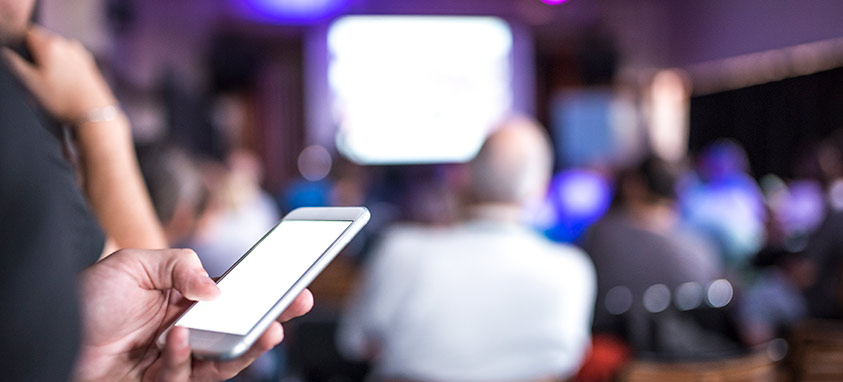Daily and event social media strategies are two different breeds. Accordingly, they should be treated as separate processes to maximize the success of both. Here are some fundamental but crucial guidelines for optimizing an event’s social media strategy.
Do: Know Your Audience
Understanding your audience will always be the best way to reach them. Be selective about choosing social media channels that target the proper audience and consider groups and hangouts that truly focus on a niche. Also, acknowledge your audience when crafting posts. Consider which tone of voice, hashtags and types of images are most appropriate.
Don’t: Get too Sales-y
Using social media to glamorize an event and capitalize on ticket sales can actually hinder your ability to reach that goal. Ensure that the link to register or purchase tickets is accessible, but don’t overpromote. Convey the highlights of the event in an engaging way that appeals to the public on a deeper level.
Do: Strategize Beforehand
Scrambling to conjure up a social media strategy at the last minute, while facing pressing event challenges, is nearly impossible. It’s also not very effective. Designate an event social media manager who will spearhead the campaign, then plan a strategy that starts at least a month prior to the event. This will ensure the highest engagement and largest reach.
Don’t: Agonize Over Hashtags
Keep the event hashtag simple, easy to remember and directly related to the event. The hashtag should be distinct and relevant to your brand. It doesn’t require layers of complexity and wit—just make sure it gets the job done and aim for brevity.
Do: Take Advantage of Advertising
Getting the word out about an event will cost some money. In a world where these social media platforms are available to everyone, there’s a price to pay to have a competitive edge. Often, the reality is that social efforts won’t be seen without a paid marketing campaign. Expect to put real money into this, as it’s a good investment. Including essential event information, registration links and distinct hashtags will ensure good ROI.
Don’t: #Overdo #the #Hashtag
Reach is very important, but when hashtags are sprinkled between every other word, interest is lost and posts look like spam. Be selective with hashtags. Remember that click rate isn’t the only important factor—content matters too. It’s fine to use the event hashtag more often, then occasionally sneak in a predetermined list of industry-related hashtags.
Do: Enjoy Yourself
Social media is entertaining, enjoyable and social by nature. When posts come from a place of genuine enthusiasm, this shows through. Sometimes posts will take you out of your comfort zone, but that’s all part of the fun. Allow yourself be bold and open when it’s called for.
Don’t: Forget to Live-Stream
This can be very difficult, as there are a million different things to focus on during an event. Live coverage can easily take a backseat. Live-streaming has been growing in popularity as a great tool for building a brand voice and stirring up excitement about an event. Don’t forget to take a few minutes to get that coverage, because the growth in engagement may be surprising and will boost your brand’s relevance.
Do: Follow Up with Content & Analytics
Showcasing the event after-the-fact will be valuable to the endeavor’s overall success. Create attention-grabbing content. Make use of photos taken at the event and pair them with detailed content. If the event looks attractive, people will already be looking forward to the next one.
Analytics also need to be examined. Fundamental metrics, such as new followers, retweets, influence and engagement are revealing. Check for ROI and KPI factors across the board. Additionally, look at the actual feedback—this information is extremely valuable in building the next venture!
Don’t: Keep Harping on it!
It’s important to push event content, but after a few days it’s time to let go. Once the event has ended, your audience is going to move on after a short amount of time. Remember to mix recaps with other fresh content to keep your pages alive. To avoid repetition, it’s also effective to alternate your materials with other brand articles regarding the event. Don’t forget that your brand is on social media to add value to a community through educating and entertaining, not to self-promote.




